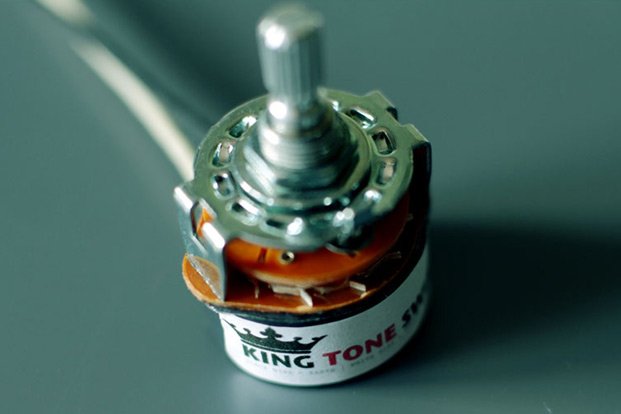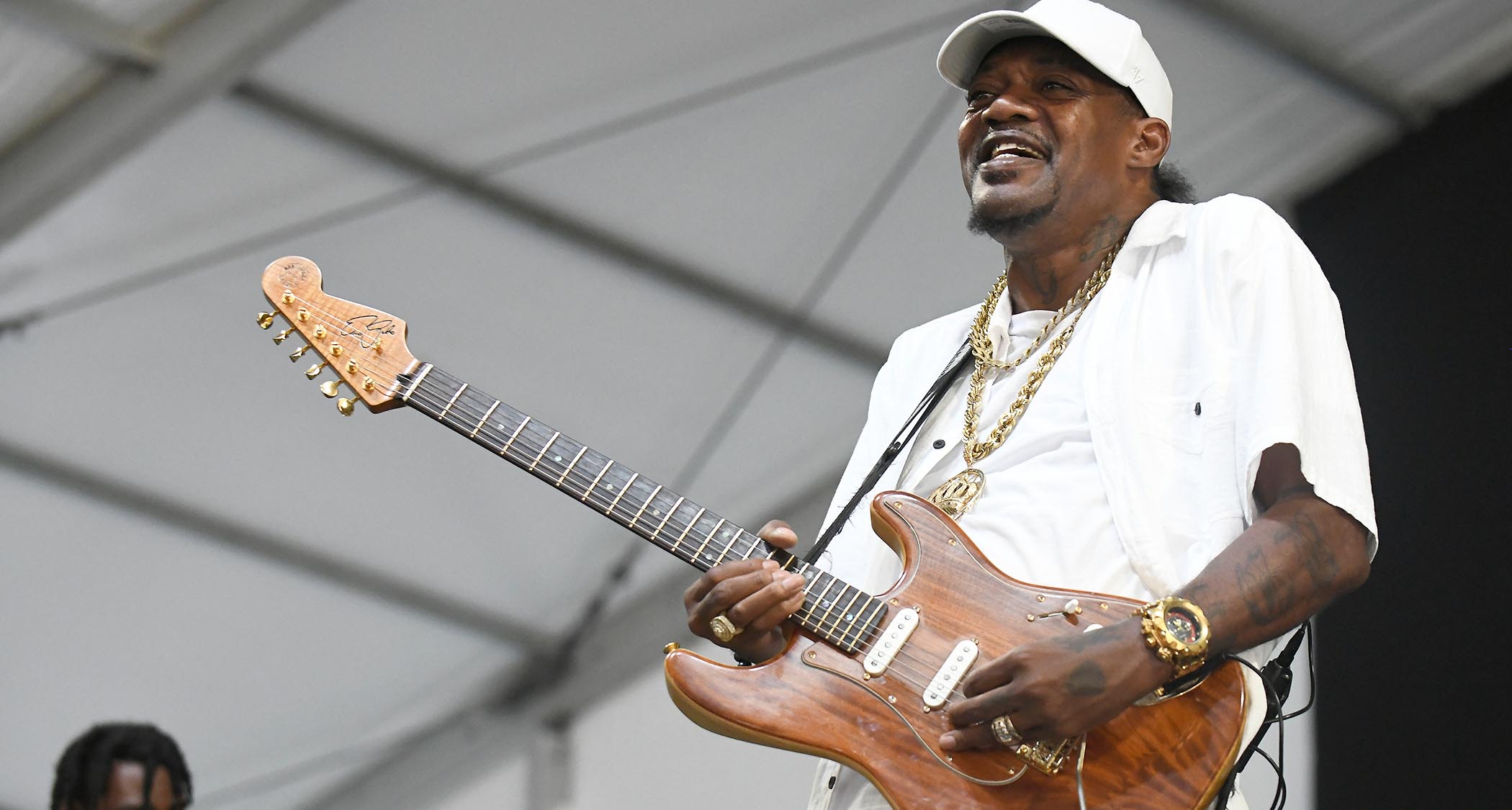Fatten Up Your Tone, Stevie Ray Vaughan Style, with the King Tone Switch
All the latest guitar news, interviews, lessons, reviews, deals and more, direct to your inbox!
You are now subscribed
Your newsletter sign-up was successful

In 1994, a young British band called the Hoax released a reasonably successful album called Sound Like This. You might even remember it.
For me, the album's strongest selling point—and the reason I played it over and over again back in the day—was the undeniable skills of the band's guitarists, Jesse Davey and Jon Amor, who convincingly nailed the late Stevie Ray Vaughan's playing style and tone.
And, yes, I know that was "a thing" in the early to mid-Nineties (I did it too), but Davey—in particular—took it to mesmerizing new heights.
As Amor told The Guitar Magazine in 2015, "Stevie Ray was our hero…to an unhealthy extent. Anything he did, we decided we were going to do as well." This meant the whole SRV deal, from guitar choices (Fender Strats, obviously) to the thickest strings their fingers could possibly cope with.
Let's take a moment so you can see/hear what I'm talking about. Here's a clip of Davey performing in 1998:
If you need more examples, check out the guitar solo from the Hoax's "Scaramouche" and this bonus clip of Davey in action.
Davey has stayed busy since those ancient times. Besides periodically touring and recording with the Hoax (voted Britain’s best blues band for five years and inducted into the British Blues Hall of Fame), not to mention the Davey Brothers and several other blues-centric projects, his impressive playing and/or writing can be heard on a host of feature-film soundtracks and releases by Mick Jagger, Ringo Starr and Dave Stewart. He also shoots music videos—hey, he's a multi-talented gent.
All the latest guitar news, interviews, lessons, reviews, deals and more, direct to your inbox!
At some point, Davey—who always enjoyed tinkering with his gear—launched King Tone Guitar, a company through which he designs, builds and sells his own effect pedals (heavy on the fuzz and drive), pickups and a tiny secret weapon called the King Tone Switch.
The four-position switch, which is shown in the photo at the top of this story, replaces your guitar's lower tone knob (the one we don't use all that often) and offers several useful sonic options.
“I had been searching for a particular tone for more than 15 years," Davey told Guitar World. "It was that edgy, singing quality I heard on so many Albert King and Stevie Ray Vaughan recordings. No matter what I tried, I couldn't quite get it. Finally, I was experimenting with using actual guitar pickups as components in circuits and discovered something that would lead me to develop the King Tone Switch."
"[The switch] basically makes a single-coil sound a bit more like a humbucker as you roll it back," Davey told The Guitar Magazine in 2015. "[It offers] a slightly deeper tone but still with the edge. There’s a sort of tubey feel to it. I use it all the time. The first one was built into a guitar pedal, but it made more sense to have it on a guitar. It’s a fairly basic passive circuit. I do sell them, and a lot of people say they leave it on all the time because when you turn it off it sounds really thin."
Davey adds the following comments on the King Tone Switch product page: "100 percent Vaughan, tubey bite, lots of attack, warm—extremely fat and thick but still has top-end bite."
Below, check out some King Tone Switch factoids, followed by two more videos (the bottom clip is from the King Tone Switch product page, so we assume Davey is using the switch in the video). You can expect a brief video from me soon-ish.
Things to know:
• Fits inside your guitar
• Four tone positions
• True bypass, so it won’t affect your normal tone
• Replaces the often-unused lower tone control
• Opens up a wide range of tones
• 100 percent passive, so you don’t need a battery
• Fully encapsulated to protect against moisture
• Easy to install
• $99.99 plus shipping from California.
Check out the demos (there are more on YouTube) and form your own opinion. Here's mine: If a respected, tech-savvy guitarist—someone who has absorbed SRV's playing habits and tone secrets as profoundly as Davey has—is putting out his own line of gear, I'm intrigued.
For more information on Davey's pedals, pickups and accessories, visit kingtoneguitar.com (There's a "contact us" link on their site if you have questions). For more about the Hoax, Amor and Davey, check out the rest of that 2015 interview.
damian fanelli ... damian@guitarworld.com ... yeah!

Damian is Editor-in-Chief of Guitar World magazine. In past lives, he was GW’s managing editor and online managing editor. He's written liner notes for major-label releases, including Stevie Ray Vaughan's 'The Complete Epic Recordings Collection' (Sony Legacy) and has interviewed everyone from Yngwie Malmsteen to Kevin Bacon (with a few memorable Eric Clapton chats thrown into the mix). Damian, a former member of Brooklyn's The Gas House Gorillas, was the sole guitarist in Mister Neutron, a trio that toured the U.S. and released three albums. He now plays in two NYC-area bands.
